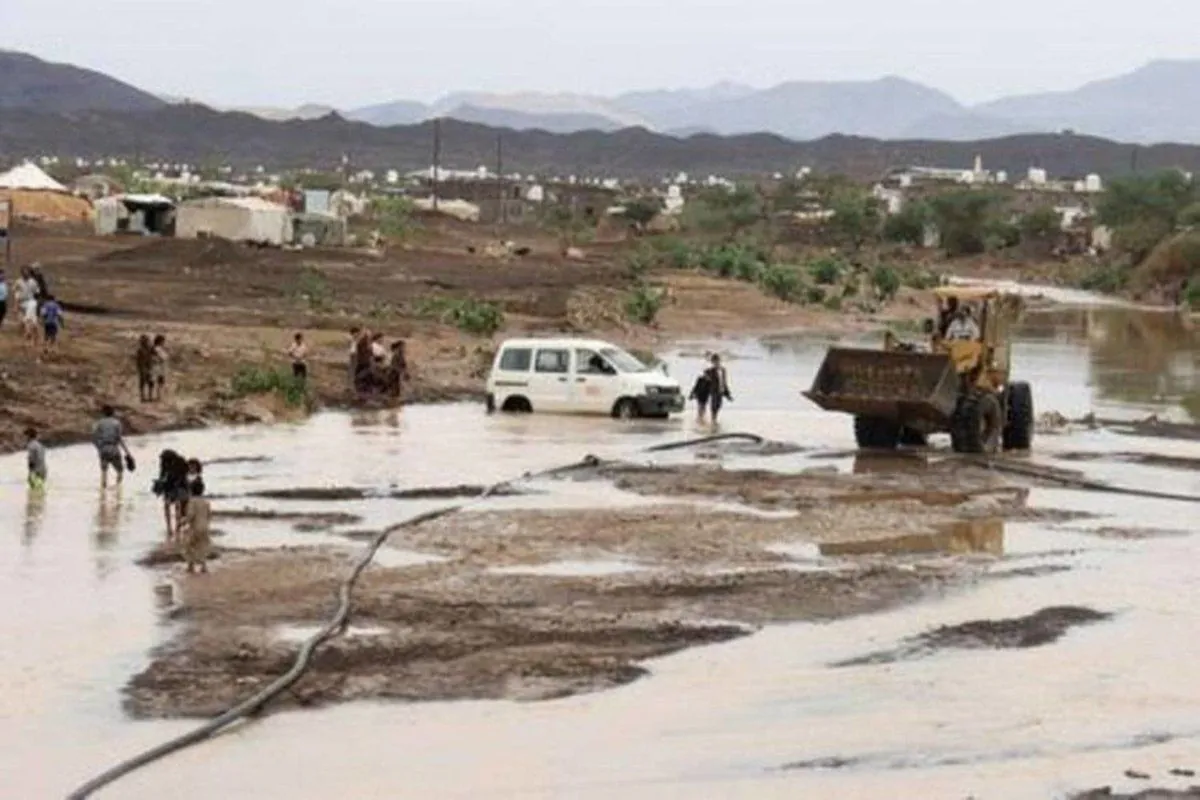Yemen Flood Death Toll Rises to 40, UN Aid Underway
Heavy rains in western Yemen cause 40 deaths and displace hundreds. UN aid partners begin urgent support deliveries to thousands of affected families in Hodeidah province.

In a recent development, western Yemen has been hit by severe flooding, resulting in a significant loss of life and widespread displacement. Officials from the Houthi movement and aid workers reported that the death toll has climbed to 40, with an additional five individuals still unaccounted for.
The flooding, caused by heavy rainfall, has had a devastating impact on Hodeidah province, a region largely under the control of the Iran-aligned Houthi movement. Over 500 residences had to be evacuated, and numerous roads were rendered impassable due to the floodwaters.

The United Nations Office for the Coordination of Humanitarian Affairs (OCHA) has initiated aid deliveries to address the urgent needs of thousands of affected families. This response comes at a critical time for Yemen, which is already grappling with one of the world's most severe humanitarian crises.
Yemen, the poorest country in the Middle East, has been embroiled in a civil war since 2014. The conflict has severely damaged the nation's infrastructure and economy, leaving its population of approximately 30 million people vulnerable to natural disasters such as this recent flooding.
Hodeidah, a major port city on Yemen's Red Sea coast, plays a crucial role in humanitarian aid deliveries to the country. The port's significance underscores the importance of maintaining access to the region, even in the face of natural disasters and ongoing conflict.
Climate experts warn that Yemen, despite its generally arid climate, is prone to flash floods. The frequency and intensity of such extreme weather events are expected to increase due to climate change, potentially exacerbating the country's already fragile situation.
The Houthi movement, which emerged in the 1990s and now controls much of northern Yemen, including the capital Sanaa, faces the challenge of managing this crisis while dealing with the ongoing conflict. The internationally recognized government, backed by Saudi Arabia, controls other parts of the country, further complicating relief efforts.
As Yemen continues to struggle with high rates of food insecurity and malnutrition, this latest natural disaster adds another layer of complexity to the country's humanitarian needs. The international community's ongoing support, including the UN's active involvement, remains crucial in addressing both immediate and long-term challenges facing the Yemeni people.


































